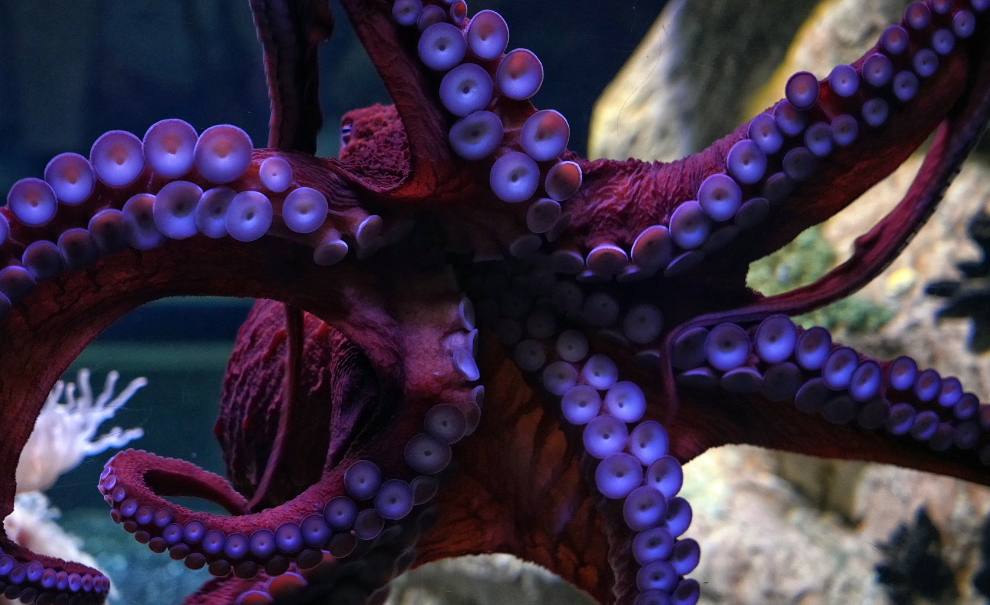Westerly Sun Column | The Many Tentacles of the Octopus Canon
May 01, 2023

My most recent reading slump lasted way longer than is appropriate for a professional librarian, until the most unexpected thing reignited my reading flame. Octopuses.
And, yes, that is in fact the accepted plural of octopus. You didn’t ask, but I’m going to tell you, because it’s just one of the many things I learned from my deep dive into these fascinating creatures! The Merriam-Webster Dictionary (which I’m now apparently reading for fun, lord help me) states that there are three possible plurals: octopi, octopodes, and octopuses. The first is the oldest plural to be used, which stemmed from the belief that Latin words should have Latin endings (as with “cacti” or “alumni”). It makes sense, except for the fact that “octopus” was actually derived from Greek … so, by the same logic, we should apply a Greek ending to the plural, making it “octopodes”. Emphasis on the second syllable (ock-TOP-uh-deez) for extra awkwardness. While there are still ardent supporters in either camp, the majority of the world has chosen to avoid the debate altogether and stick with octopuses. Plus, most scientists prefer it, which is good enough for me.
Now that we’ve cleared up the etymology (have we?), let’s talk books. I read “Remarkably Bright Creatures” (2022) by Shelby Van Pelt, and cannot recommend it enough. The book is told from the point of view of the three main characters: an aimless 30-something-year-old who is searching for his father, an elderly nighttime janitor at an aquarium who is still mourning the mysterious disappearance of her son many years ago, and a highly intelligent giant Pacific octopus, who tries to help the old woman solve the mystery before his short life comes to an end. It was initially described by the publisher as being “either bananas or brilliant.” Honestly, it might be a bit of both, but it’s extremely enjoyably (especially the chapters narrated by our snarky octopus friend, who was reluctantly dubbed “Marcellus McSquiddles”).
In the acknowledgements, Van Pelt references another book, which I immediately checked out from the library: “The Soul of an Octopus” by Sy Mongomery (2015). In it, Mongomery writes about her time studying octopuses at the New England Aquarium, describing the different ones she became close with and their wildly different personalities. Mischievous octopuses that like to escape from their enclosures or squirt water in visitors’ faces, curious octopuses who seem to enjoy nothing more than grabbing people with their suckers and “tasting” their skin, and numerous stories about their incredible problem-solving abilities and complex social interactions. The book is sweet, and satisfying, and will have you looking for even more stories about octopuses by the end.
If you want more (which, of course you do!) I also recommend the documentary “My Octopus Teacher” (2020), though it is currently only available on Netflix. There is also the PBS film “Octopus: Making Contact,” available through our consortium or on our free film-streaming platform, Kanopy. It’s next on my list!
by Cassie Skobrak, Adult Services Librarian








